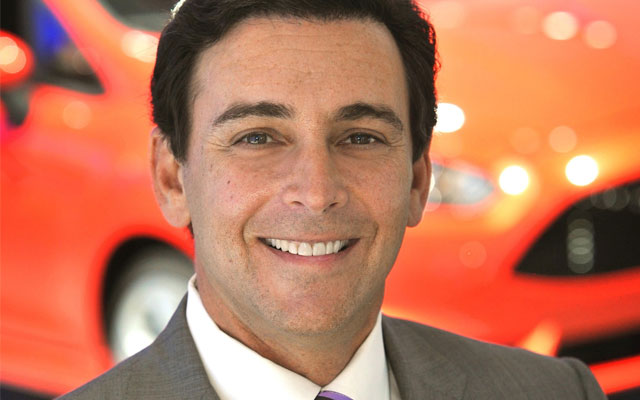
Ford Motor Co is investing US$1bn in a months-old start-up founded by two pioneers in the nascent autonomous vehicle sector.
The Pittsburgh-based artificial intelligence company Argo AI will develop the brains — specifically, a virtual driver system — for the fully autonomous vehicles Ford has promised to bring to market in 2021. Founders Bryan Salesky and Peter Rander are former leaders of the self-driving car teams at Uber Technologies and Google.
“This is a unique partnership,” Mark Fields, Ford’s CEO, said in an interview. “A lot of tech companies are looking for customers and a lot of OEMs are looking for technology partners. We are getting expertise, and Argo AI is getting a customer in Ford.”
The investment planned for over the next five years reflects how hot the race for autonomous vehicles is getting within an industry facing other seismic shifts including electrification and ride-sharing.
Self-driving vehicle start-ups are emerging at a frenetic pace after General Motors and Uber acquired upstarts — each with just a few dozen employees — for hundreds of millions of dollars apiece in separate acquisitions last year.
Ford’s plans closely mirror Toyota’s $1bn investment over five years toward creating its own robotics and artificial intelligence research division. Toyota Research Institute was established more than a year ago and is being led by Gill Pratt, the former top robotics engineer for a US military agency.
“I never heard of Argo AI until 10 minutes ago,” Eric Paul Dennis, a transportation analyst for the Centre for Automotive Research, said by phone shortly after Ford’s announcement. “The way they’ve structured it — with the start-up maintaining independence — sounds reasonable.”
Salesky led hardware development on the self-driving car project at Google. He and Rander, a former Uber engineer, have no other backers.
Argo AI will function as a subsidiary of Dearborn, Michigan-based Ford for accounting purposes. The company will largely operate and hire independently and offer equity to engineers, said Raj Nair, Ford’s executive vice-president of global product development and its chief technical officer.
Salesky will manage the Argo AI team. He’ll report to a five-member board of directors — two from Ford, two from Argo AI and one independent director. Ford will have an unspecified majority stake in the company.
Expansion plans
Argo AI expects to have roughly 200 employees by the end of this year between its headquarters in Pittsburgh and offices in Southeast Michigan and the San Francisco Bay Area.
Ford’s crosstown rival GM in March of last year announced plans to buy Cruise Automation and later disclosed paying about $581m at closing. The total cost of the deal would be more over time, Detroit-based GM said in July. The following month, Uber acquired Otto, a self-driving truck start-up that had been founded seven months earlier, in a deal worth as much as $680m.
The initial focus for Argo AI will be to support Ford’s autonomous vehicle development and production. The company could license its technology to other companies and sectors looking for autonomous capability in the future.
“When Pete and I decided to found the company, there were a lot of ways to try to fund it,” Salesky said in an interview. “We are excited about the long-term commitment of Ford and the straight timeline to market. We want to make 2021 a reality.” — (c) 2017 Bloomberg LP




